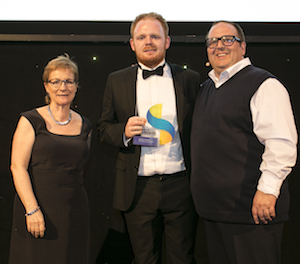According to the latest IDC study on tablets in enterprises, a large and increasing share of tablets deployed across UK, French, and German companies are the only devices that employees are equipped with to perform their business activities.
"The majority of tablet users in enterprises currently have at least another device to perform their business activities," said Marta Fiorentini, senior research analyst, IDC EMEA Personal Computing.
"Additional devices are usually desktop or portable PCs, smartphones, workstations, or, depending on the employee's role, specialised handheld or point of sale (POS) devices.
"However, a large share of tablets is already used by employees as their only work tool, either replacing traditional client devices or for functions previously not supported by any computing device.
"As digitalisation transforms business processes and tablets are optimised for business functions from both a hardware and application standpoint, we can only expect an increase in the share of standalone tablets, as confirmed by the purchase intentions of the study respondents."
According to the study, tablets are the only business device for 40% of users. This percentage, however, increases significantly for 2-in-1s or convertibles, as these hybrid products are deployed to replace portable and desktop PCs thanks to the option of being used with a keyboard.
This has been observed across the vast majority of user groups since the keyboard functionality eliminates the need for an additional device dedicated to productivity tasks.
The study also shows that hybrids - in either the detachable or convertible form factor - are usually purchased with larger screen sizes than tablet slates.
Indeed, while just over 10% of all slates have a screen size larger than 11in., the current percentage for hybrids is almost 30% and this is expected to surpass 50% over the next couple of years, reinforcing the assumption that 2-in-1s and convertibles can be a replacement for portable PCs.
In spite of the cannibalisation effect on traditional client device markets, standalone commercial tablets are also creating a huge opportunity for device makers.
"Tablets are already used by waiters instead of pen and paper, by doctors and nurses to replace paper-based files, or by pilots as a substitute for bulky manuals," Fiorentini said.
"These are only a few examples, and this is where the growth opportunity lies. IDC calculated that in 2014 this incremental market accounted for almost 6% of tablets used as standalone in the U.K., France, and Germany. We expect this percentage to increase quickly in these three countries and exceed 20% over the next 24 months."

 Judges at the Skills for Business awards praised Pennine Telecom for its 'sustained commitment' to staff as they presented two trophies to the Bury-based data and telecommunications specialist.
Judges at the Skills for Business awards praised Pennine Telecom for its 'sustained commitment' to staff as they presented two trophies to the Bury-based data and telecommunications specialist. Gamma has extended its connectivity portfolio with the launch of a new MPLS-based wide area networking service aimed at businesses with multiple sites and those looking to converge existing data and telephony networks. Called Converged Private Networks (CPN) the service is fully integrated with Gamma's IP voice products (Gamma SIP Trunks and Horizon cloud PBX), and gives resellers access to a purpose-built combined voice and data network.
Gamma has extended its connectivity portfolio with the launch of a new MPLS-based wide area networking service aimed at businesses with multiple sites and those looking to converge existing data and telephony networks. Called Converged Private Networks (CPN) the service is fully integrated with Gamma's IP voice products (Gamma SIP Trunks and Horizon cloud PBX), and gives resellers access to a purpose-built combined voice and data network.